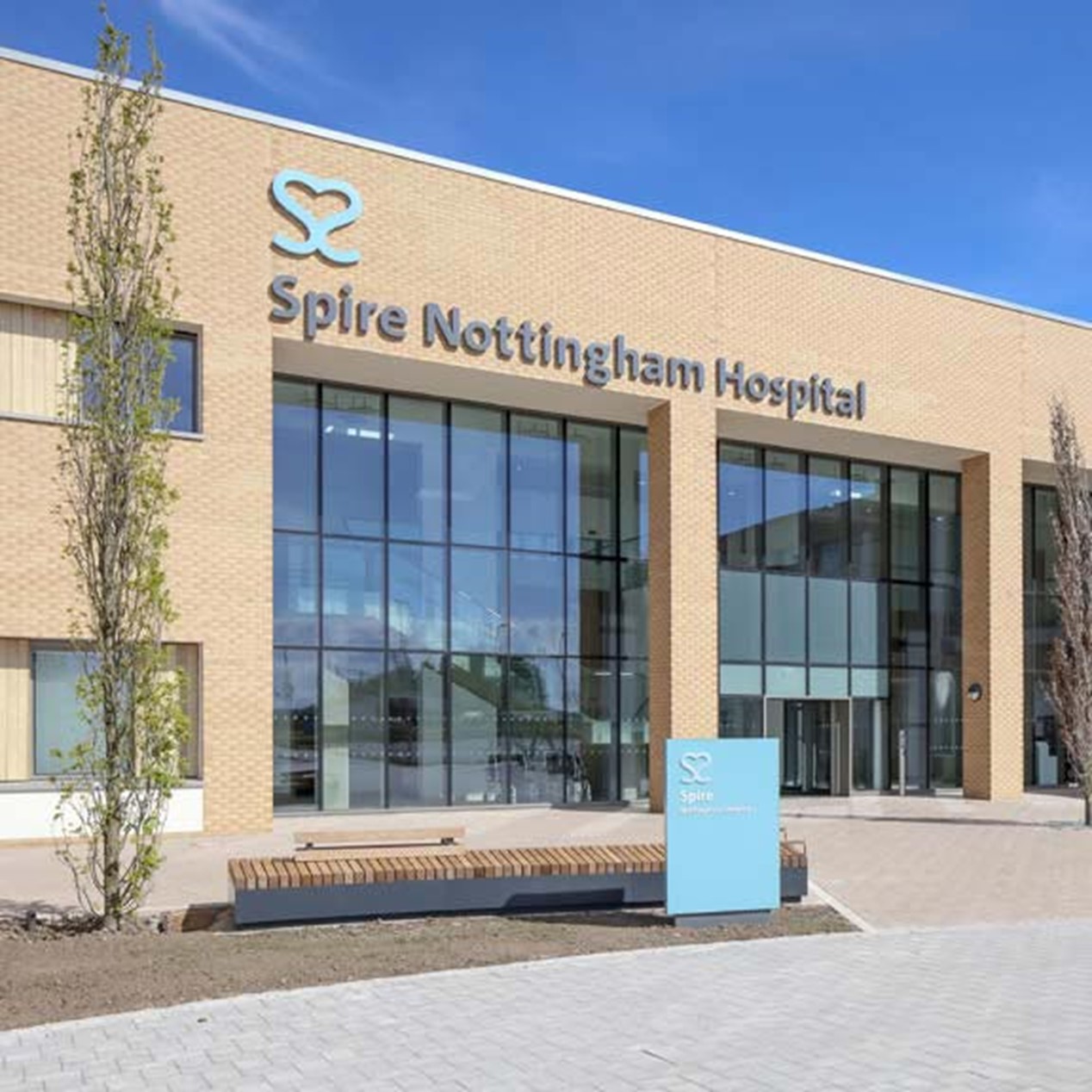View this treatment at your local spire Spire Hospital
- Local pricing
- Consultants near you
- Payment options
- Local pricing
- Consultants near you
- Payment options
It may be advised as the recommended treatment for an overfunctioning gland, or ‘thyrotoxicosis’.
Why you might need it
Thyroid surgery involves removing either part of your thyroid gland or your total thyroid gland. The surgery may be recommended for one of several reasons. It may be advised as the recommended treatment for an overfunctioning gland, or ‘thyrotoxicosis’. Alternatively, thyroid surgery may be advised to help identify a cause or provide treatment for a thyroid swelling. In some cases, it can also be used to treat pressure symptoms from a very enlarged thyroid gland.
Find a Spire hospital offering this treatment

Who will do it?
Our patients are at the heart of what we do and we want you to be in control of your care. To us, that means you can choose the consultant you want to see, and when you want. They'll be with you every step of the way.
All of our consultants are of the highest calibre and benefit from working in our modern, well-equipped hospitals.
Our consultants have high standards to meet, often holding specialist NHS posts and delivering expertise in complex sub-specialty surgeries. Many of our consultants have international reputations for their research in their specialised field.
Before your treatment
You will have a formal consultation with a healthcare professional. During this time you will be able to explain your medical history, symptoms and raise any concerns that you might have.
We will also discuss with you whether any further diagnostic tests, such as scans or blood tests, are needed. Any additional costs will be discussed before further tests are carried out.
You will be advised regarding the possible need for any medical treatment before and after surgery. This may include thyroid hormone replacement tablets or calcium supplements.
Preparing for your treatment
We've tried to make your experience with us as easy and relaxed as possible.
For more information on visiting hours, our food, what to pack if you're staying with us, parking and all those other important practicalities, please visit our patient information pages.
Our dedicated team will also give you tailored advice to follow in the run up to your visit.
The procedure
Thyroid surgery is considered a major operation, and is therefore always performed under general anaesthesia. The surgery carries general risks including bleeding, infection in the surgical site and unsightly scarring. There are also additional specific risks which are pertinent to thyroid surgery and these include the small risk of a change in your voice and a possible drop in your body’s calcium levels.
The operation itself can take between one and two and a half hours. The surgeon will make a cut in the line of one of your skin creases, in the front of your neck and remove the thyroid gland. Following the surgery, you will be required to stay in hospital at least one night, but the duration of hospital stay will vary and potentially be longer, depending on the extent of thyroid surgery that you require.
Aftercare
Following your discharge from hospital, after thyroid surgery, you will able to eat and drink normally. Although, you may be able to perform most light, general daily activities, normally, you will need to allow some time to recuperate fully. You should be able to gradually return to work and resume all normal activities after about two weeks following the operation.
Even after you’ve left hospital, we’re still looking after you every step of the way. After thyroid surgery, typically our consultants will want to see you at about two weeks after your procedure to see how you are doing.
On rare occasions, complications following thyroid surgery can occur. If you experience any of these symptoms, including voice change, difficulty in breathing, or altered sensations in the hands, feet or lips, including tingling, cramps or pain, please call us straight away.
If you have any questions or concerns, we're here to help.
Why choose Spire?
We are committed to delivering excellent individual care and customer service across our network of hospitals, clinics and specialist care centres around the UK. Our dedicated and highly trained team aim to achieve consistently excellent results. For us it's more than just treating patients, it's about looking after people.
Important to note
The treatment described on this page may be adapted to meet your individual needs, so it's important to follow your healthcare professional's advice and raise any questions that you may have with them.

